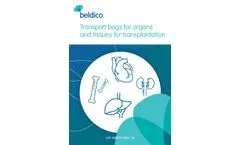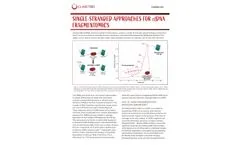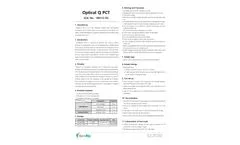organs-and-tissues-for-transplantation Downloads
5 downloads found
Every human organ and tissue donation is precious. Transport is one of the critical stages in the transplantation process. Damage to the organ or tissue to be transplanted must be kept to a minimum. Protected by a multiple sterile barrier, the harvested organ must be placed and transported in a dedicated container, according to current ...
ByBeldico
Methylmalonic acidemia (MMA) and propionic acidemia (PA) are rare intoxication-type inborn errors of metabolism that are characterized by acute metabolic decompensations, acidosis and hyperammonemia leading to severe organ damage, seizures, developmental deficits, and premature death. In the United States, about 1 in 70,000 newborns is diagnosed with MMA, and 1 in 240,000 is diagnosed with PA. ...
Cell-free DNA (cfDNA), found circulating in blood plasma, contains a wealth of clinically relevant biological information which can be recovered by minimally-invasive procedures. Next Generation Sequencing (NGS) data obtained from cfDNA, can be used to monitor prenatal health, organ transplant reception or rejection, cancer and other ...
Aspergillosis is the most common cause of fungal infection among stem cell and solid organ transplant recipients, resulting in high mortality if untreated. Patients with weakened immune system and lung diseases are at higher risk of developing severe outcomes. Early detection and quantification of Aspergillus with molecular methods is crucial to isolate infected patients and provide an ...
Procalcitonin (PCT) is a substance produced by many types of cells in the body, often, and more significantly in response to bacterial infections and sepsis, but also in response to tissue injury and stress. Other stressors may include viral infections, trauma, surgery, pancreatitis, burns, shocks associated with cardiac arrest, and acute organ transplant rejection. PCT tests are conducted to ...





